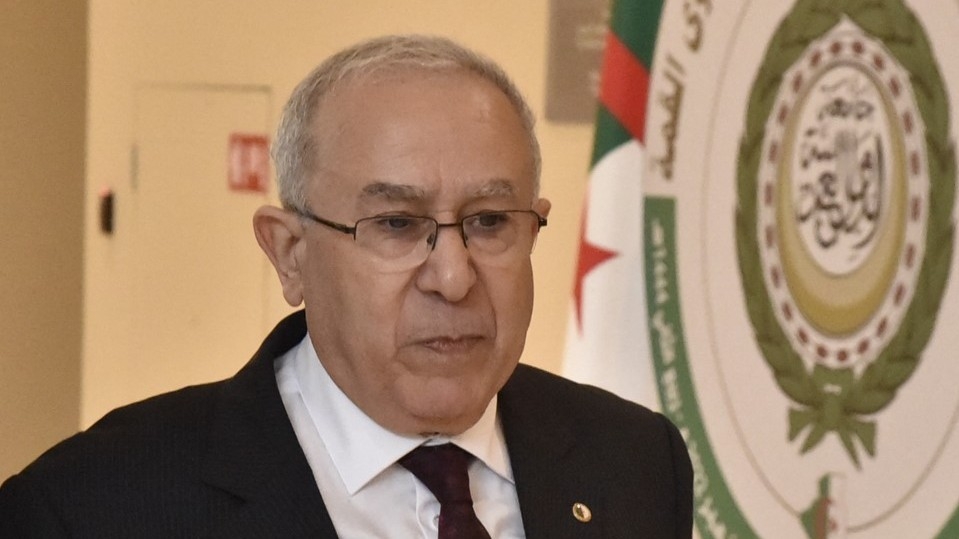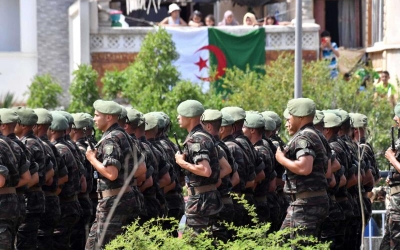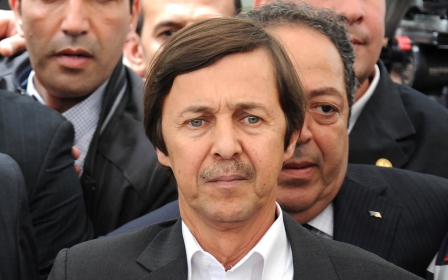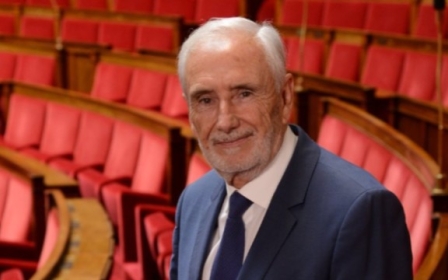Algeria: The story behind the foreign minister's dismissal

On the afternoon of 16 March, private and official television channels in Algeria broadcast the breaking news that a cabinet reshuffle was imminent.
At this point, journalists and observers were mainly wondering who would replace Foreign Minister Ramtane Lamamra. Unlike 10 other fellow ministers who were unseated, his fate had already been sealed for several weeks.
In Algiers, many journalists and diplomats had known for several months that Lamamra, who had held office since June 2021, was due to be replaced. A connoisseur of the workings of the African Union and the United Nations, Lamamra, the top Algerian diplomat for the past three years, was obviously not in favour with President Abdelmadjid Tebboune.
From his first year in office, 2019, Tebboune had indeed set his sights on appointing another renowned diplomat, Sabri Boukadoum, to be minister of foreign affairs.
But his entourage also viewed Lamamra as fit for the job. A former minister of foreign affairs under the reign of Abdelaziz Bouteflika, Lamamra was seen as a charismatic, well-connected diplomat.
After a few months in office, however, dissenting voices emerged. In certain Algiers circles, it was whispered that the foreign minister had "presidential ambitions" dating back to 2019, after the fall of Bouteflika, who was forced to resign by the Hirak popular revolt.
While he wasn't dismissed initially, obstacles were placed in his way.
'Some decisions were made without his knowledge. Worse, government media were also asked not to publicise his activities'
– Diplomatic source
"Some decisions were made without his knowledge. Worse, government media were also asked not to publicise his activities," a diplomatic source told Middle East Eye.
An angry Lamamra "submitted his resignation three times" last year, a former minister who knows him well told MEE. However, he "would never dare to run for president if Mr Tebboune presented himself".
The three resignations were rejected, and Lamamra would reappear after several days, even weeks, during which he slipped away, often touring African or Arab countries.
This game of cat and mouse between the former commissioner for peace and security of the African Union and the Algerian presidential entourage lasted several months. But at the beginning of February, events accelerated.
On 8 February, local and French media reported that the Algerian-French activist and opposition figure Amira Bouraoui had escaped Algeria via Tunisia with the consular assistance of France, after she was sentenced to two years in prison for "offending Islam" and insulting the president.
This caused a new crisis between Paris and Algiers. A press release from the foreign ministry expressed the "anger" of the Algerian authorities, who accused "French state services" of having "exfiltrated" the activist to France.
A few minutes later, it was the Presidency of the Republic that announced the recall of the Algerian ambassador to Paris "for consultation". In insider circles, it was known that the move was made without the consent of the minister of foreign affairs.
'A man of compromise'
The day after the dispute between Algiers and Paris, Algerian media announced that the president had approved a diplomatic reshuffle that affected ambassadors and general consuls in several capitals around the world.
Once again, the presidency sidelined Lamamra. But some media sources had a different version of events.
"Lamamra presented a list of ambassadors and consuls that the presidency refused and replaced it with another," a journalist familiar with the matter told MEE.
Other sources mentioned an additional reason for this rupture: the Algerian president had decided to allocate a budget of $1bn to the Algerian Agency for International Cooperation - attached to the presidency - to finance development projects in certain African countries. Lamamra did not like it and "would have wanted the file to be handled by his department", a journalist told MEE.
Lamamra kept silent, however, and opted to withdraw from the public eye. This retreat was interrupted only briefly, on 23 February, when he received copies of the credentials of the new ambassadors to Algiers.
He also attended a ceremony organised in honour of members of the Algerian Civil Protection who took part in rescue efforts following the devastating earthquakes in Turkey and Syria.
But apart from these events, all the other receptions, including those of ministers who came to Algiers, were organised by the secretary general of the ministry, Amar Belani.
Speculation was then rife over Lamamra's absence; some even thought he was sick. However, on 11 March doubts began to dissipate. When Ugandan President Yoweri Museveni came to Algiers for a state visit, it was still Belani in charge of the reception, alongside Tebboune and other senior officials.
The following day, images of the arrival at Algiers airport of the European Union foreign policy chief, Josep Borrell, were striking: he was met by just one senior official from the foreign ministry.
Then the programme of his visit was interrupted by a lunch initially planned with Lamamra. It was once again Belani who replaced his superior at the table.
Not if but when
From this moment, it was no longer a question of whether Lamamra would leave the government, but when. In Algiers' newsrooms, people were beginning to speculate about the identity of the future foreign minister.
Against all expectations, Tebboune did not appoint Belani to replace Lamamra, as suggested by the media and diplomats, including those who accompanied Borrell.
The president recalled Ahmed Attaf to head the foreign ministry that he led from 1996 to 1999. The 70-year-old career diplomat had been off-duty for more than 24 years.
Reputed to be "a man of compromise", Attaf is also known to be an "old-fashioned" diplomat who "is not divisive", qualities that he has not yet demonstrated since taking office.
As for Lamamra, some are already predicting a "promising" future for him, while others believe that his career is over, even if the future may hold surprises.
* This article was originally published in French.
Middle East Eye propose une couverture et une analyse indépendantes et incomparables du Moyen-Orient, de l’Afrique du Nord et d’autres régions du monde. Pour en savoir plus sur la reprise de ce contenu et les frais qui s’appliquent, veuillez remplir ce formulaire [en anglais]. Pour en savoir plus sur MEE, cliquez ici [en anglais].





